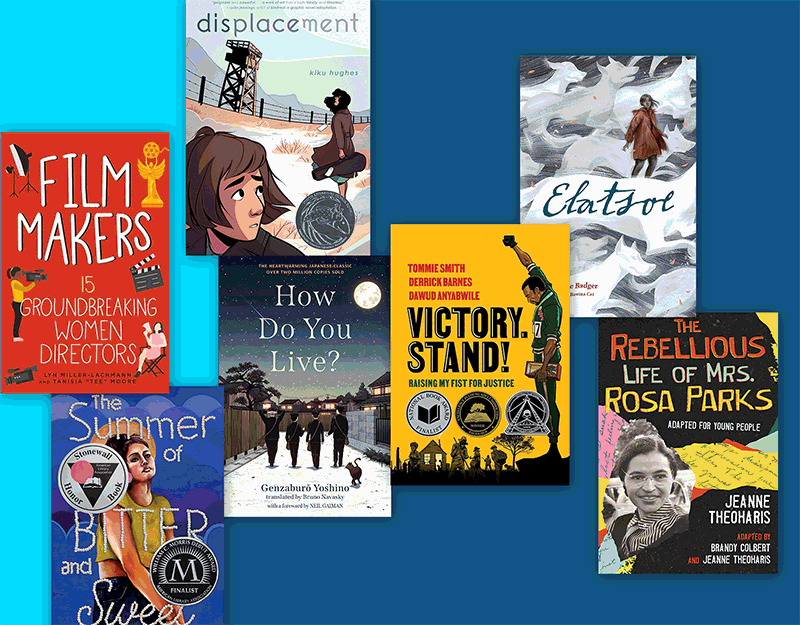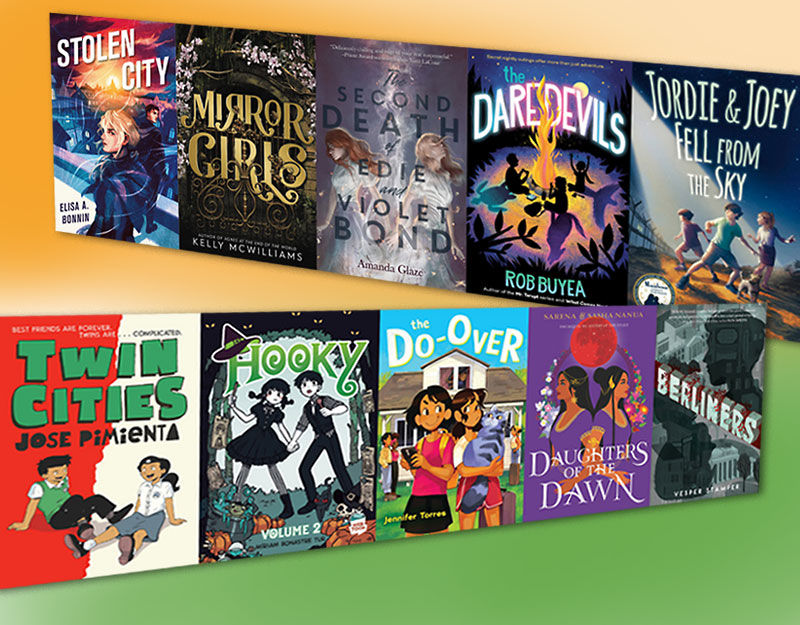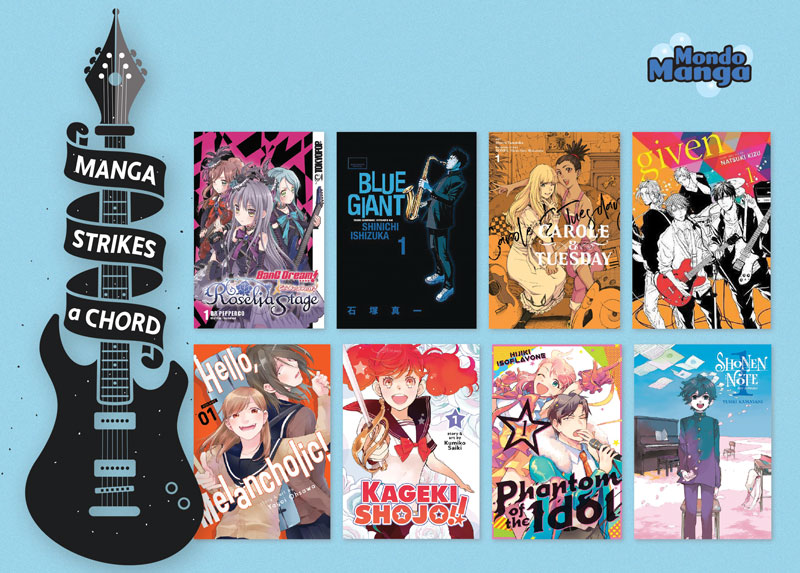Thinking Out Loud: Marketing and the Library Lock-In
My mentor called me the other day and asked about what I would do in a particular situation that involved teens at a library lock-in, my very glib response was, “I wouldn’t have had the lock in.” Already many of you are seeing flames and thinking about your replies – but wait, let me explain myself.
I have come to think of the library lock-in not from a programming perspective, but from a marketing one. Everything that we do sends a message and we must ask ourselves, what is the take away of this event. To me, I think we can make a fair argument that the library lock-in may be a form of false advertising. You see, we invite teens in when the library is empty and we let them run around (although probably not literally) and yell and scream (also probably not literally) and use the space in a way that they will never get to use the space the remaining 364 days of the year. In fact, if they came into the library any other day they would probably disrupt other library patrons and be reprimanded (although hopefully quite nicely) by staff. A library lock-in is not normal operating procedures and would could argue that it does not help teens understand the role of the public library in the community and appropriate ways to use the library.
ADVERTISEMENT
ADVERTISEMENT
I often worry, too, that we librarians have forgotten ourselves the value in the library: the importance of books and how the written word can change lives, the importance of information seeking and evaluation skills, the importance of the freedom to take in a wide variety of information from multiple points of view and decide for ourselves how we are going to incorporate that into our lives. I wonder if we sometimes aren’t undermining ourselves and our message, our value to the community, by trying to be something other than a public library. It is almost as if the message we are sending is “being a library isn’t enough, we must be more for people to love us.” Instead, what we need to do, is make sure our message is loud, concise and strong – communities need us because they need intelligent, empowered, thinking and feeling members and that comes with access to a public library.
Now, for the other side of this coin: I recently had occasion to dialogue with a teen librarian who uses a lock-in as a reward for teens who participate in her winter and later in the year summer reading challenge. She is a pretty awesome librarian. This changed my mind a little bit on my stance. You see these teens, they are regular library users who have come to understand and appreciate the library’s role in their life. Here, as a reward, it speaks an entirely different message: you are a valued customer and you get a special moment in a sacred place.
So before you flame me, please remember that I AM a library advocate (please see The 2012 Project for proof). I am an advocate for teens and authors and books and information and intellectual freedom. I’m just not 100% sure that I am an advocate for library lock-ins. So let’s talk about it, share what you think in the comments. And for the record, yes – I have done library lock-ins, just not recently.
Filed under: Marketing, Teen Programming
About Karen Jensen, MLS
Karen Jensen has been a Teen Services Librarian for almost 30 years. She created TLT in 2011 and is the co-editor of The Whole Library Handbook: Teen Services with Heather Booth (ALA Editions, 2014).
ADVERTISEMENT
ADVERTISEMENT
SLJ Blog Network
The Moral Dilemma of THE MONSTER AT THE END OF THIS BOOK
Cover Reveal and Q&A: The One and Only Googoosh with Azadeh Westergaard
Winnie-The-Pooh | Review
Parsing Religion in Public Schools
ADVERTISEMENT










I'm not going to flame you, because I feel the same way. After school, students act differently, and our charge isn't to “babysit” but rather integrate reading and teens. So, call me a fun dampener, but I think during the day there's plenty of leeway for downtime for students without having to open it up for a full 24 hours of fun and games (or hell, whichever best suits the scenario)
I definitely see your point – you couldn't pay me enough to stay up all night in a teen lock-in. However! I think you disagree with your own point a little bit. Wasn't the Angry Birds event at your library? Definitely not normal library behavior, and definitely not about books, but still an awesome time that got kids excited about being at the library! Just a thought 🙂
Aha, I wondered how long it would take for someone to argue that we do programming like the Angry Birds program, which we do in fact do. First, I do think that in the 21st century that libraries are about more than books and that is something we definitely need to communicate in our marketing and programming. Most programming is done in meeting or programming room during the libraries open hours: these are spaces designed just for these types of events and invite our patrons to come into these spaces and see what we have to offer. In fact, by having them come in during our open hours that get an accurate picture of what a library is and what we provide to the community. Like I said, I see all sides of the equation and I am not sure where I currently fall – I'm just thinking out loud.
I never did a teen lock-in, but ran several Tween Sleepovers (50 kids) and Family Sleepovers (120 people, all ages). Every single one of those people (tweens included) was clever enough to figure out that what was happening was different, that we were using the space in a way that was special and unusual. We did not undermine our day-to-day mission and character; we highlighted it and played with it, reinforcing it.
I'm admin now, and my librarians have shown zero interest in sleepovers and lock-ins, which is fine. It's not required. But I don't want them to argue that it's counter to our mission and undermines the value of public libraries, because that simply is not so.
I really, really respect libraries- it does not matter to me the ‘way’ they are run. If the method is fitting and relevant to the community… Congratulations!!! The community and library can expect to thrive symbiotically!!! Fantastic ☺
However, I’ve experienced some really, really snobby Library management/Librarian teams. Mostly, this takes place in the more “well-off” community libraries. I will never forget the unpersonable **holes from the -Rhymes with Drano- Central Library. Maybe some of those Uppity Management/Librarian teams undertake a spiritual “knowledge quest” which mutates into a creepy “power quest” until THEY ARE THE TITANS ruling over the mere humans that dare to populate their library. (Who wouldn’t like to imagine themselves a Titan every now and then?)
To me, it seems like these are the type of people who might challenge a library lock-in. They have established these crazy boundaries that send the message to the public: This Is MY Freaking Castle and you Shall Obey My Rules Here. That is a rather cold and out-of-touch way to run things. The example is extreme, probably.
BUT what I’m trying to say is, you will do a far better job for your community than to run things like Titans. It is a challenge to be inventive all the time and to encourage people to be involved in the library. To keep them coming back. Isn’t that why the ALA has to have blowout shindigs every 6 months? (Also, to give us cool free stuff!) Risks are risky, but sometimes they pay off wildly. Our library is a long term payoff. Maybe it’s hard for some to imagine long term. Because it’s too challenging.
You know what surprised me the most while chaperoning at several lock-ins and teen after-hours programs?
The teens.
Sitting down for a bit, catching their breath, relaxing, READING. *mind explosion*
Yea, lock-in kids read. Even at lock-ins. Which are way fun, btw.
Take that Anti-Fun-Havers at the library. Keep teaching your GED knitting circle. We’ll have all the fun anyways ☺
I guess I should make a few clarifying points. I realize that a lock-in can be an after hours events of any duration and is different then an all night sleepover, which is more what I was thinking in my statement.
Also, I think it is valuable for us all as librarians to take the time periodically to examine what we do and ensure that it continues to be a best practice and not just something that we do out of habit or something we see others doing. What is right for one library is not right for another, doesn't even work in another. However, when we discuss how programming fits into our mission I think it is essential that we go on to explain why and how. I always wonder to if when we are discussing library missions if we mean a specific library mission or the general mission of a library as an information resource for a community. That is another one of those nebulous terms. I think that librarianship has an overall general mission, but of course each community library also has its own specific mission statement (well, they should.)
Thirdly, I received some personal email comments that indicated that administrators had unreasonable expectations of programming and wanted to run the library like a business. I think that our communities and our administrators should in fact demand that we be able to articulate why we are doing what we are doing and be able to make a strong defense of our programming choices in terms of value to the individual, value to the community, and even being able to make a cost/benefit evaluation. For example, you may be able to do a sleepover for 8 hours and reach 20 teens at a cost of over $400 including staff time and supplies; but it may be a better decision to have a one hour gaming program that reaches a broader audience with a lower per person and overall cost. This seems especially true to me in these times with staff, funding and time shortages. These are reasonable decision making discussions.
I think our choices need to send the best message, reach the broadest audience, and prove the best use of time and resource management and I don't know that library sleep-overs always do that or are always the best choice to accmomplish this.
But whatever your view on library sleep-overs may be, it is always good to dialogue with other librarians and take a second to make sure that what we are doing still works. So if you read through all of this and determine that library sleepovers are right for you, then I have accomplished my goals with this post.
Next week I will have a guest blog post that talks about the library sleep over from a different point of view because I value that opportunity to think about and discuss teen librarianship. Have a great day everyone.
Of course, then we could get into a discussion of niche marketing which is a whole other discussion and completely appropriate, too.
I am currently planning my first lock-in as the new Teen Services Librarian, in a library that has never before offered teen services (yay!). It is going to be a Read-a-Thon from 5 – 10 on a Friday evening. I'm actually wondering if you have any resources you would recommend to help with my plans? Anything I might not think of – like do the parents usually sign waivers? And I am totally with you by the way on the whole “Stick to the mission” thing; even to go as far as questioning the value of video game night (gasp!). I know it brings teens to the library, but so would installing a satellite dish…
Thanks for your WONDERFUL site!
My Teen Advisory Group keeps asking for a lock-in (at EVERY meeting where we discuss programming) and I wanted to give them what they want, but I have the same reservations about the Lock-In. I discussed with them why this program would take time to plan and why it is something special and they seemed to understand that IF I can make it happen, it's definitely a privilege.
Our solution will be similar to your friend's: the Lock-In is going to be a special TAG only event as a treat for volunteering at our location during the year (probably in the Fall after SRP). Only TAG members will be allowed and it will run from 9pm-12am (not overnight). While it may not be a !!sleepover of crazy!!, they're still excited to be in the library when no “adults” are around.
We're in the early planning stages, so I'll keep you posted 🙂
I think the bigger picture is how the lock-ins tie in to a larger marketing plan and evaluating whether or not they are actually effective in building relationships that last longer than the “one-night stand”, if you will. Some libraries make the event more meaningful than others, but I think that sometimes we focus too much on “fun=attendance=success” without really accomplishing much beyond good stats for the event. How are we measuring “involvement with the library”? That's the million-dollar, long-term question. Sure, you're creating a positive experience/memory, building a comfort level, etc. but are we progressing from there? Asking ourselves the critical questions should encourage us to share ideas for improvement rather than to get sidetracked with tangential ranting.